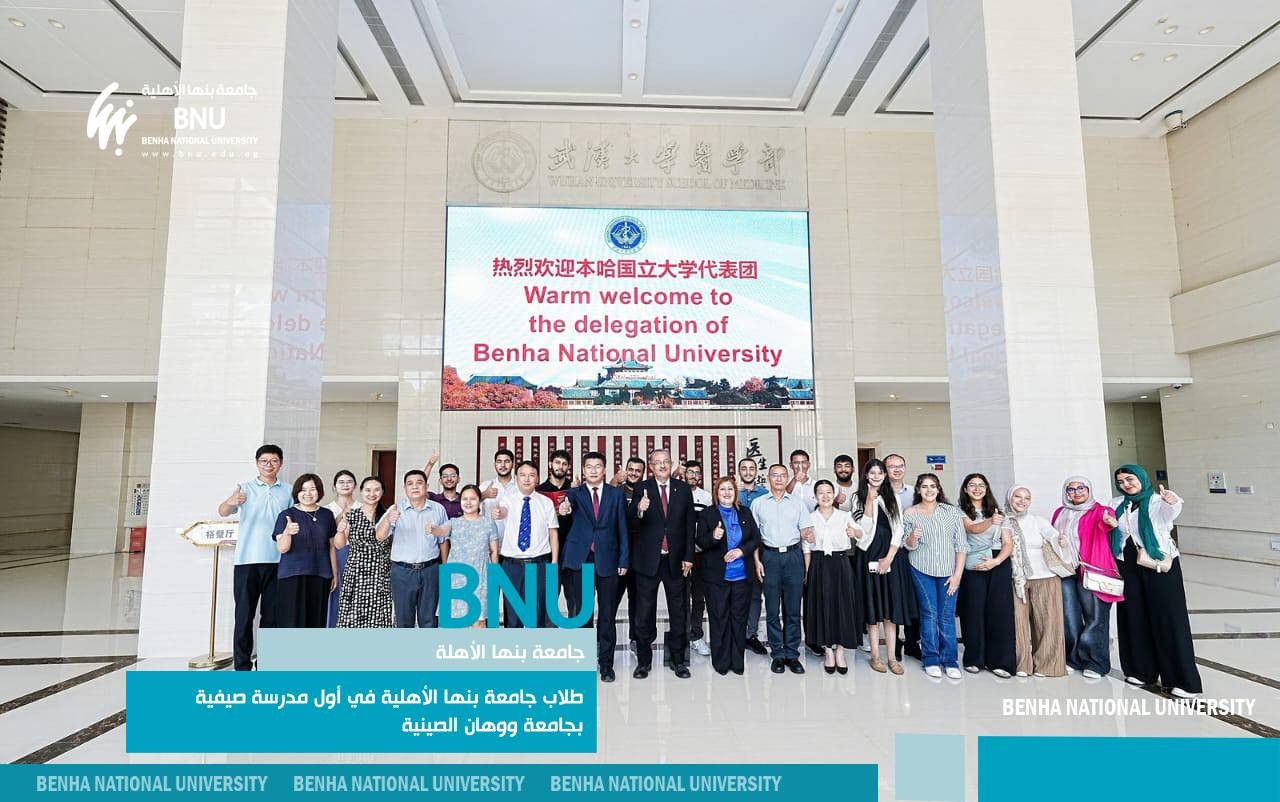The Journey in Brief
- Location: Wuhan University, China – One of Asia’s leading academic institutions.
- Duration: Two weeks (until August 19, 2025).
- Objective: Merging academic excellence with cultural exchange and building bridges for international collaboration.
Academic Achievements: A Leap toward Advanced Medical Futures
- Hands-on Training in Cutting-Edge Medical Technologies:
- 13 students from Medicineand Dentistry practiced using surgical robots in simulated procedures and observed live liver and kidney transplants at a specialized center.
- Mastered Apheresis blood separation technologyfor leukemia treatment, with practical sessions in advanced labs.
- Dental students trained in digital diagnostics and complex case management using smart simulation clinics.
- Field Visits to Leading Hospitals:
- Explored 4 major university hospitals and two globally ranked dental hospitals, observing China’s high standards in healthcare delivery.
- Internationally Recognized Certifications:
- Participants earned two certificationsfrom Wuhan University:
- Apheresis Technology Certification.
- University Hospital Training Program Certification.
- Participants earned two certificationsfrom Wuhan University:
Cultural Dimension: Bridging Egyptian and Chinese Civilizations
- Hubei Provincial Museum: Students explored ancient Chinese history through artifacts dating back to early dynasties.
- Yangtze River: A reflective journey along Asia’s longest river, highlighting the role of geography in shaping cultural identity.
- Yellow Crane Tower: A cultural icon offering panoramic city views and insights into local legends.
- East Lake: A natural oasis showcasing Wuhan’s balance between urban development and environmental preservation.
International Academic Collaboration: Strategic Partnerships in Motion
- Formal Discussions: Prof. Karim El-Dash (Vice President for International Relations) and Wuhan University leadership explored:
- Student and faculty exchange programs.
- Joint research in medical AIand biotechnology.
- Collaborative online learning platforms.
- Leadership Vision:
- Tamer Samir(University President):
“This program isn’t just training—it’s a step toward nurturing globally competitive physicians who understand the challenges of a interconnected world.”
- Karim El-Dash:
“Collaborating with Wuhan opens unprecedented opportunities in oncology and emergency medicine research.”
Impact on Students: Personal and Professional Transformation
- Global Perspectives: Exposure to diverse healthcare systems broadened their understanding of global medical challenges.
- Leadership Skills: Interaction with multinational medical teams enhanced adaptability in cross-cultural environments.
- Cultural Legacy: Students documented their journey through blogs and videos, inspiring peers back in Egypt.
Next Steps: Expanding the Program’s Horizons
- Benha University plans similar programs in Japanand South Korea, partnering with top-tier institutions.
- Future programs may include training in integrative medicineand micro-robotics.
Conclusion:
This journey was not merely an academic visit but a gateway to global opportunities for Benha’s students. By blending science with cultural dialogue, the program redefined medical education as both a technical discipline and a unifying human language. Under the guidance of a university leadership that views education as a tool of “soft diplomacy,” these students are shaping a future where medicine transcends borders.

